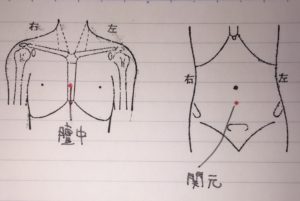〇 ウイルス感染症状の再発ということは、すでに、これまでにも多数報告されていますが、再感染は全く意味が異なります。
〇 症状の再発というのは、ウイルス量がいったん検出可能な濃度以下に低下していたが完全に治癒しないまま、再度増加して再び検出可能となることです。これに対して、再感染というのは、いったん完治した後、十分な期間を経た後に、再度、新たに感染することを意味します。
〇 再感染例の報告が、なぜ緊急課題に値するかというと、ワクチンが開発されても無効であるばかりではなく、かえって有害になる可能性が示唆されるからです。
〇 新型コロナ肺炎の病原ウイルスはSARS‐CoV‐2といって病毒性の強いSARSウイルスの仲間であり、しかも一本鎖RNAウイルスであるため遺伝子変異をしやすいことが指摘されていますが、すでに複数の種類に変異しています。
武漢型ウイルスに感染して抗体が形成されても、たとえば遺伝子配列の異なる欧州型ウイルスには感染してしまうことが明らかになりました。このことは、1種類のワクチンでは、予防できない可能性があることを意味します。
〇 ワクチンが無効であるばかりでなく、さらに問題になるのは、コロナウイルスには「抗体依存性増強」(ADE)という現象がすでに報告されていることです。
これは、中途半端な、親和性(結合力)の低い抗体が存在したり、抗体の量が減っていたりすると、抗体は逆説的にウイルスの増殖、病気の進行を促進してしまうという現象です。
実際に感染するより弱い免疫しか得られないワクチン接種でかえって被害が拡大する可能性があるということの注意は十分に喚起しておかなければならないと考えます。
そこで、NATUREという世界で最も権威のあるジャーナルに掲載された論文を、一般人向けにわかりやすく解説した英文記事を入手しましたので、翻訳してご紹介することにしました。
「抗体依存性増強」(ADE)については、別の機会に改めてご紹介します。
Hong Kong researchers say they’ve found the world’s first case of covid-19 reinfection
香港の研究者らが世界初のコビド‐19の再感染例を発見したと発表
The discovery could mean the coronavirus is never going away.
この発見はコロナウイルスが決して消えることがないことを意味しているかもしれない。
by
• Antonio Regalado archive page
August 24, 2020
WIKIMEDIA COMMONS
The 33-year-old-man arrived by plane in Hong Kong on August 15. After disembarking, he headed to one of the airport’s covid-19 testing stations. Someone swabbed his throat, and then he waited for the results.
33歳の男は8月15日に飛行機で香港に到着した。下陸後、彼は空港のコビド19検査場の一つに向かった。誰かが彼の喉を綿棒でぬぐい、彼は結果を待った。
The man had come down with the coronavirus in March, suffered fever and headaches, and spent two weeks in a hospital. So he probably didn’t expect to test positive again just 142 days later.
男性は3月にコロナウイルスに感染し、発熱と頭痛に苦しみ、2週間入院していた。そのため、わずか142日後に再び陽性反応が出るとは思っていなかっただろう。
But he did. Was it the original infection lingering in his body or had he caught the virus again, something no one had ever shown was possible?
しかし、彼は陽性になった。最初の感染が彼の体内に残っていたのか、それとも誰もが可能性を示していなかったウイルスに再び感染してしまったのだろうか?
Scientists at Hong Kong University say they have the answer. On the basis of a genomic analysis of the virus, they say the man got covid-19 a second time, and are calling his case “the first instance of human reinfection” with the novel coronavirus.
香港大学の科学者たちは答えを見つけたと言っている。ウイルスのゲノム解析に基づいて、この男性はコビド19に2度目の感染をしたという。そして彼の症例を新型コロナウイルスの「人間の再感染の最初の例」と呼んでいる。
The discovery that immunity wears off, if confirmed, could change the math on the pandemic in profound ways. It would mean that surviving the virus is no guarantee of lifelong immunity, that people might have to get vaccinated every year, and that even survivors will still need to wear masks and follow rules on social distancing.
免疫が消耗するという発見が確認されればパンデミックの計算を大きく変える可能性がある。 それはウイルスを生き延びたからといって、生涯の免疫力が保証されるわけではないことを意味し、人々は毎年ワクチンを接種しなければならないかもしれないし、生存者であっても、マスクを着用し、社会的距離を保つためのルールに従う必要があることを意味している。
Most of all, it could mean the coronavirus might strike again and again, never really going away.
何よりも、コロナウイルスが何度も何度も襲ってくる可能性があり、決して消えることはないということである。
“Our findings suggest that SARS-CoV-2 may persist in the global human population as is the case for other common-cold-associated human coronaviruses,” Kwok-Yung Yuen, Kelvin Kai-Wang To, and Ivan Fan-Ngai Hung, all professors at Hong Kong University’s medical school, said in a signed statement obtained by the South China Morning Post.
「香港大学医学部のKwok-Yung Yuen教授、Kelvin Kai-Wang To教授、Ivan Fan-Ngai Hung教授は、サウスチャイナ・モーニング・ポスト紙が入手した署名入りの声明の中で、「我々の調査結果は、他のコロナウイルスと同様に、SARS-CoV-2が世界の人間集団に持続する可能性があることを示唆している」と述べています。
Previously, some people in Japan and elsewhere had tested positive twice for the virus weeks apart, but doctors had concluded that those results were due to test errors or lingering infection.
以前、日本と他の地域では、何人かの人々が数週間の間隔で2回ウイルスの陽性反応を示したが、医師たちは、これらの結果は検査のミスか感染が長引いているためだと結論付けていた。
Researchers in Hong Kong, however, believe that their gene analysis proves this man caught the virus a second time.
しかし、香港の研究者は、遺伝子解析の結果、この男性が2回目にウイルスに感染したことを証明したと考えている。
Because the virus has gradually mutated as it spreads around the globe, different strains have unique genetic fingerprints. When the Hong Kong researchers compared the genetic sequences of the virus that sickened him in March and the one he had in August, they found differences at 24 positions.
ウイルスは世界中に広がるにつれて徐々に変異していくため、異なる株には独特の遺伝的痕跡がある。香港の研究者たちは、3月に彼を発病させたウイルスと8月に感染したウイルスの遺伝子配列を比較したところ位置の違いが24カ所あることを発見した。
“The team showed that the genome sequence of the virus strain in the first episode of COVID-19 infection is clearly different from the genome sequence of the virus strain found during the second episode of infection,” according to the Hong Kong University statement.
香港大学の声明によると、「研究チームは、最初のCOVID-19感染エピソードで発見されたウイルス株のゲノム配列は、2回目の感染エピソードで発見されたウイルス株のゲノム配列とは明らかに異なることを示した。」
It’s known that four common coronaviruses, which cause colds, frequently reinfect people, sometimes within months. That, along with data showing that antibodies to the new virus fade with time, had previously led some scientists to predict that immunity to SARS-CoV-2 would follow a similar pattern.
風邪の原因となる4種類の一般的なコロナウイルスは、数ヶ月以内に人に感染することが多いことが知られている。これには新しいウイルスに対する抗体が時間の経過とともに薄れていくことを示すデータによって、SARS-CoV-2に対する免疫力も同様のパターンをたどるだろうと以前から予測していた一部の科学者がいた。
If true, it is unlikely that herd immunity can eliminate the virus entirely, according to a copy of the case report posted by Chinese media, since people will constantly be losing their immunity, perhaps after a few months.
中国メディアが投稿した症例報告書のコピーによると、もしそうであれば、おそらく数ヶ月後には、人々は絶えず免疫力を失っていくことになるので、集団免疫でウイルスを完全に排除できる可能性は低いとのことである。
That doesn’t mean the virus will remain the danger it is today. People who’ve been infected, or vaccinated, might have fewer symptoms the second or third time around.
だからといって、ウイルスが現在のような危険な状態になるわけではない。感染した人やワクチンを接種した人は、2回目や3回目になっても症状が少ないかもしれない。
Some coronavirus experts have suggested that on reinfection the covid-19 germ will stay in the upper airway, causing sniffles, rather than penetrating the lungs to cause pneumonia.
コロナウイルスの専門家の中には、再感染したコビド19菌は肺に侵入して肺炎を引き起こすのではなく、上気道にとどまり、鼻詰まりを引き起こすと指摘する人もいる。
At least in the case of the Hong Kong man, his second infection wasn’t nearly as bad as his first. Doctors say he didn’t show any symptoms of being sick at all.
少なくとも香港人の場合、彼の2回目の感染は、彼の最初の感染ほど悪くはなかった。医師によると、彼には病気の症状は全く見られなかったという。














